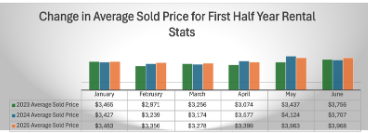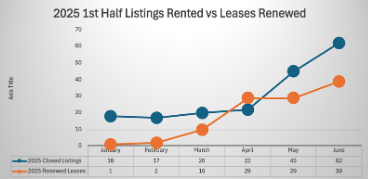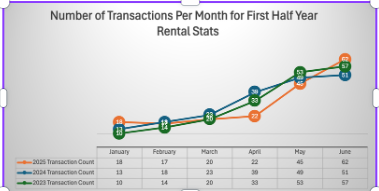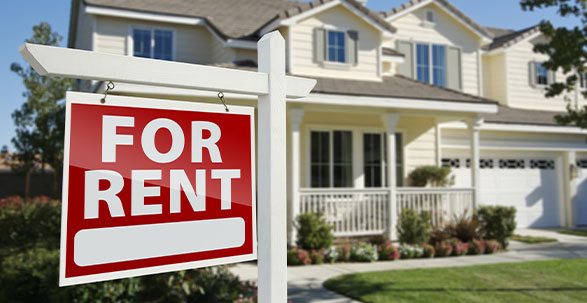If your lease is ending anytime between now and next spring, your window for strategic decision-making is already open — and in some cases, closing fast.
At Chambers Theory, we begin preparing renewal terms approximately 150 to 120 days before the lease end date. That’s not just best practice — it’s a legal and logistical necessity. Some jurisdictions in the DMV do have restrictions on the ability to provide notice of renewal or non-renewal (Washington DC for example), but if allowed our lease stipulates at least 60 days prior to lease expiration that a Tenant must notify us of their desire to renew or terminate. But waiting until that 60-day line puts you at risk of rushed pricing, limited marketing runway, and a reactive rather than proactive position. Instead, we use the full four to five-month window to evaluate market trends, assess tenant behavior, and position each property for optimal long-term performance — whether through renewal or re-listing.
In today’s environment, that advanced lead time is more valuable than ever. Rent values across the region are rising steadily but not dramatically — and tenants are more educated, more price-sensitive, and more willing to negotiate than they were even a year ago. That doesn’t mean you lose leverage; it means you need to use it wisely.

Within the Chambers Theory rental portfolio, we have seen shifts in 2025 that are affecting our renewal recommendations and strategies for our clients. For the first time since 2022, we have seen an increase in our days on market. While we still are at an industry low, 18 days on average – that represents a 41% increase over last year during this same period (13 day on market on average). Additionally, our achieved rents on the active rental market have seen a 2% increase over the first half year of 2024, which is considerably less than the 6-7% increase year over year that we saw in 2023 and 2024 respectively.

Starting in 2025 we have improved our renewal tracking to give us better data and insights into renewal trends to match our open rental market data. So far in 2025, we have seen an average increase in rent of 2.81% for our renewals, outpacing the market increase on the open market. In the same period (January 1st, 2025 – June 30th, 2025) we have rented on the open market 184 properties, and we have renewed 110 leases. The number of properties rented on the open market is down 5% over last year.

What does this data tell us? While we can’t as accurately track our previous renewal data, this shows a clear shift in the open rental market. Longer days on the market with more modest rental increases means that people are choosing to stay put, and the inventory while down is sitting longer. Given instabilities in the job market, particularly at the federal government level, and our local economy, many tenants may be choosing to stay put and instead negotiate with their landlord rather than risk the cost of a move when the rents are not substantially better elsewhere and they face uncertainty in other areas of their life.
When we present a renewal increase to a tenant, it’s never just a price hike. It’s a value recalibration: a reflection of market conditions, the reliability of their tenancy, and the improvements (or added services) delivered since the move-in. Sometimes, that means bundling small enhancements or “tenant asks” as part of the new term. If there is something simple that would make your Tenant happier in the home AND more willing to accept a price increase and remain in the home, there is clear value to considering this, especially if the cost of the improvement also helps maintain the long-term health of your home.
Timing and strategy matter. If you’re looking at your future long-term goals, considering that within the context of your renewal is smart. Tenants who commit to renewal 90+ days before the lease end tend to remain longer, report higher satisfaction, and create smoother transitions year over year. Late renewals often trigger anxiety, second-guessing, or even accidental non-renewals that turn into unwanted vacancies. Perhaps you intend to sell the property and leave the area of upgrade/downsize. Maybe you’re considering no longer renting it as a long-term rental but rather a short-term rental on AirBnB or VRBO. In any scenario, evaluating the market conditions of the long-term rental market against the sales market and even the short-term rental climate in your area, is the best way to make strategic decisions that support your long-term financial goals for your family and the property.
If you wish to have a discussion regarding your property portfolio strength and the upcoming renewal timeline for your property, please reach out to your Client Care team to collaborate with the Leasing Department and if desired Home Theory Sales Team for customized and strategic solutions to achieve your goals.


